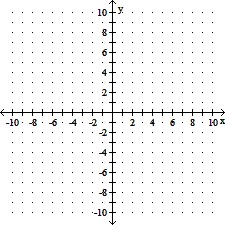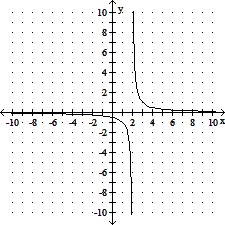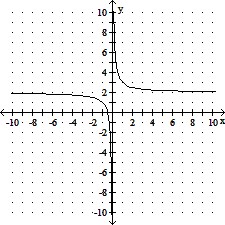Graph the function and then find the specified limit. When necessary, state that the limit does not exist.y =  + 2;
+ 2;  f(x)
f(x) 
A.  f(x) = 0
f(x) = 0
B.  f(x) = -2
f(x) = -2
C.  f(x) = 0
f(x) = 0
D.  f(x) = 2
f(x) = 2
Answer: D
You might also like to view...
Provide an appropriate response.The following equations each describe the motion of a particle. For which path is the particle's velocity vector always orthogonal to its acceleration vector?(1) r(t) = t6i + t6j(2) r(t) = cos (8t)i + sin (9t)j(3) r(t) = ti + t3j(4) r(t) = cos (-4t)i + sin (-4t)j
A. Path (4) B. Path (1) C. Path (3) D. Path (2) and Path (4)
Use roster notation to name the set.The set of natural numbers that are multiples of 3
A. {3, 9, 27, . . . } B. {3, 6, 12, . . . } C. {3, 6, 9, . . . } D. {1, 2, 3, . . . }
Construct the indicated reflection.The reflection of the given circle about line y
What will be an ideal response?
Let 

?
Perform the operation: 
?
A. 
B. 
C. 
D. 
E. none of these?